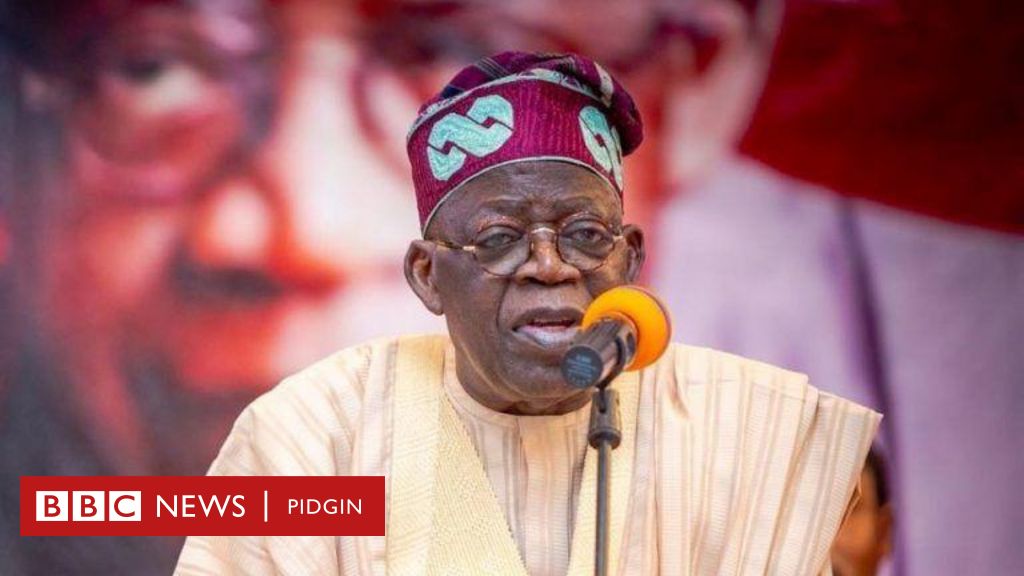President Bola Ahmed Tinubu’s Democracy Day address before the National Assembly was delivered with polish, poetry, and patriotic fanfare. But beneath the florid rhetoric and the saccharine invocations of June 12 lies a sinister contradiction: a government that claims to cherish multiparty democracy while actively orchestrating its demolition. Tinubu’s speech was not a celebration of Nigerian democracy; it was a performance of duplicity, an exercise in gaslighting a nation that is watching its democratic space shrink under the weight of a calculating and coercive ruling party. Let us be unequivocal: President Tinubu is lying.
A Hollow Promise Amidst Political Cannibalism
In paragraph 18 of his address, Tinubu declared: “At no time in the past, nor any instance in the present, and at no future juncture shall I view the notion of a one-party state as good for Nigeria.” And yet, even as these words left his mouth, Nigeria’s political reality told a radically different story. In paragraph 24, Tinubu sarcastically went all-in. Hear him in his own words: “Political parties fearful of members leaving may be better served by examining their internal processes and affairs rather than fearfully conjuring up demons that do not exist. For me, I would say try your best to put your house in order. I will not help you do so. It is, indeed, a pleasure to witness you in such disarray.” Under Tinubu’s watch, opposition governors are defecting in suspicious waves, not with ideological conviction but under pressure, coercion, or the lure of protection from persecution.
Governors Sheriff Oborevwori of Delta State and Umo Eno of Akwa Ibom – both elected on opposition party platforms – were recently welcomed into the APC fold like war trophies. In doing so, the President openly celebrated what he called “bailing out of a sinking ship,” revealing that the defections were less about free will and more about the systemic sabotage of opposition lifeboats. These defections are not signs of a healthy democracy but the symptoms of an elite project to turn Nigeria into a one-party state through political attrition and weaponized state institutions.
From the Last Man Standing to First Opposition Bulldozer
Tinubu tries to polish his legacy as a democratic stalwart, referencing his lonely stand as the last opposition governor in 2003. That image, once iconic, has now curdled into irony. The man who once stood against hegemonic forces now leads them. He lauds his resistance to the PDP’s attempt to rule for 60 years, while his own party operates with the same brazen ambition. Tinubu has not only inherited the PDP’s worst instincts; he has amplified them with more Machiavellian tactics. Rather than foster an environment where opposition parties can flourish and citizens can choose from a diversity of ideas, Tinubu’s APC has become an ideological vacuum cleaner; sucking up politicians, collapsing political boundaries, and rendering Nigeria’s electoral competition meaningless.
Weaponization of State Power
Let’s be clear: the defection of governors and lawmakers en masse is not normal political fluidity. It is the outcome of a state apparatus being used to intimidate, entice, and dismantle opposition parties from within. The EFCC and other anti-graft bodies have become selective tools; swift in hounding opposition politicians, sluggish or blind when APC members stand accused. This asymmetric application of justice ensures that joining the ruling party is not a political decision; it is often a matter of survival.
Tinubu claims not to have “altered any political party registration with INEC.” He doesn’t need to. When state resources, security agencies, and media narratives are skewed so heavily in favor of one party, formal deregistration becomes unnecessary. The effect is the same: a silencing of dissent through attrition, intimidation, and co-optation.
Celebrating Democratic Martyrs While Eroding Their Legacy
Perhaps the most galling aspect of Tinubu’s speech is the performative reverence paid to the heroes of June 12 – a generation of activists, journalists, and political rebels who defied tyranny. But honoring Kudirat Abiola and Ken Saro-Wiwa means nothing when the institutions they died defending are being gutted in real time. Tinubu speaks of “dialogue over dictatorship,” while political opposition figures face manufactured court cases, restricted access to media, and orchestrated disinformation campaigns. He pledges to “value civil liberties,” while protest organizers are detained and critics routinely labeled as enemies of the state. You cannot claim the moral high ground of June 12 while building a fortress of fear around political pluralism. That is historical betrayal masquerading as homage.
Much of Tinubu’s speech rests on a sleight of hand: presenting economic and infrastructure gains as proof of democratic health. But authoritarian regimes also build roads and grow GDPs. Democracy is not just development; it is choice, dissent, and alternation of power. If opposition parties are stripped of their viability, then elections become rituals without meaning, and democracy becomes a charade.
What we are witnessing under Tinubu is not democratic consolidation. It is the consolidation of one man’s power under the guise of democratic legitimacy. His speech, filled with the language of national healing and renewal, was in fact a eulogy, not for Nigeria’s democracy, but for its multiparty system.
Conclusion: Nigeria’s Democracy is in Peril
President Tinubu is not safeguarding democracy; he is suffocating it beneath layers of symbolism, co-optation, and deception. His denials of authoritarian ambition ring hollow when examined against the reality of state-enabled defections, persecution of dissenters, and the slow disappearance of opposition from the political landscape. If this trend continues, Nigeria will not need a constitutional amendment to become a one-party state. It will simply wake up one morning to find that the opposition has vanished, not by law, but by design. History will not remember Tinubu as a protector of democratic ideals. It will remember him as the architect of Nigeria’s slow democratic decline; the man who spoke of freedom while locking the doors behind him.





